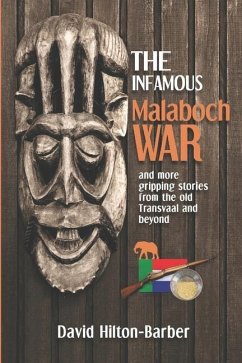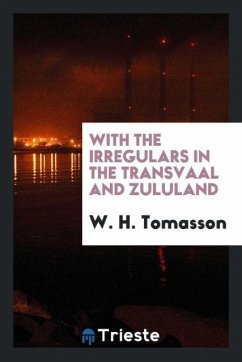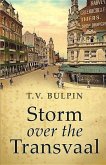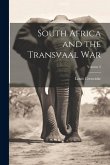The war against Malaboch has been extensively covered in articles published by the South African Military History Society and South African History Online, as well as in the Standard Encyclopaedia of Southern Africa. However, it was my reading of Notes from my Diary on the Boer campaign of 1894 against the chief Malaboch of Blaauwberg, district Zoutpansberg, South African Republic by the Rev Colin Rae (published by Juta in 1898) that sparked this fresh look at the campaign. The Rev Rae observes that "through the campaign the poor Malabochians were seldom aggressors, their attitude being nothing more or less than a gentle protest against what they considered an unjust encroachment on their ancestral rights." In May 1894 he accompanied the commando led by General Joubert by request of the Bishop of Pretoria. "I lost no time in acceding to this request, having but little doubt as to its purport. It was, as I conjectured, to consult me as to my willingness to accompany the troops, and act as Chaplain if so required. He warned me of all dangers likely to be incurred, as well as the hardships likely to be endured. I immediately consented, as these did not deter me, promising to be ready to start at half a day's notice." It is unclear why the Bishop wanted an Anglican priest to attend the expedition. There were only a handful of Englishmen "commandeered" and they were hardly willing recruits. Nevertheless, Rae held services at the request of Colonel Ferreira, the Acting-Commandant for the Pretoria Town Contingent. While at the scene of the campaign, "The Rev Coetsee of Pietersburg, arrived in camp and held a service for the Dutch, returning home a few days afterwards. I held regular services every Sunday morning and evening." Rae attributed the success of his ministry amongst the troops chiefly to the faithful prayers of friends and well-wishers. His diary was published soon afterwards; the reasons given were as follows: In presenting the following account to the indulgence of the public, I am keeping a promise made to my comrades in the Malaboch campaign, who were kind enough to think that a published diary of events would be of interest, not only to those who were engaged in the expedition, but to a larger number who watched the proceedings of each day with anxiety, and who are deeply interested in South African affairs generally. I believe the reasons given by Rae are no less relevant today. Moving on to the chapter on the Ndebele nation, I am cognisant of its almost total decline and degradation in today's Zimbabwe. Once a proud state which conducted treaties in its own name with Britain and other countries, it has now been reduced to tatters. This started with the horrendous Gukurahundi, from January 1983 until December 1987, when a ZANLA crack regiment, exclusively composed of Shona soldiers trained by North Korean experts in manslaughter, killed close to 50 000 civilians in Matabeleland and Midlands. Millions more were left traumatized, displaced and disorientated after being subjected to brutal experiences including torture and rape. This was followed by the Ndebele economy being substantially converted into Shona control, financial institutions, manufacturing industry, parastatals, public institutions and the private sector all coming under Shona control. In the education sector, all schools in Bulawayo have a Shona majority in terms of staffing. SiNdebele has been relegated to an inferior language. In some churches Ndebele people are not permitted to worship in their language. I recently came into possession of a file compiled by the late Ernest Mtunzi, resident in London and personal assistant to Joshua Nkomo until the latter's death.
Hinweis: Dieser Artikel kann nur an eine deutsche Lieferadresse ausgeliefert werden.
Hinweis: Dieser Artikel kann nur an eine deutsche Lieferadresse ausgeliefert werden.








